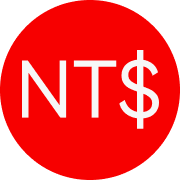
ATMA to BDT Converter and calculator


Conversion rates
Convert ATMA to BDT
Convert BDT to ATMA
ATMA to BDT chart
ATMA to BDT conversion data: Volatility and price changes of ATMA in BDT
| Last 24 hours | Last 7 days | Last 30 days | Last 90 days | |
|---|---|---|---|---|
High | 0.2257 BDT | 27.08 BDT | 29.4 BDT | 29.4 BDT |
Low | 0.1214 BDT | 0.1214 BDT | 0.1214 BDT | 0.1214 BDT |
Average | 0 BDT | 0 BDT | 0 BDT | 0 BDT |
Volatility | % | % | % | % |
Change | +10.97% | -98.60% | -- | -- |
ATMA information
ATMA to BDT market statistics
Current ATMA to BDT exchange rate
ATMA to Bangladeshi Taka is falling this week.More info about ATMA on Bitget
Bangladeshi Taka information
About Bangladeshi Taka (BDT)
The Bangladeshi Taka (BDT), introduced in 1972, is more than just the official currency of Bangladesh; it represents the country's journey through economic challenges and its aspirations for growth and stability. It is commonly abbreviated as BDT and represented by the symbol ৳. Replacing the Pakistani Rupee, the Taka was established following Bangladesh's independence, marking a significant step in the nation's quest for economic sovereignty.
Historical Background
The introduction of the Bangladeshi Taka was a pivotal development in the nascent nation’s history, reflecting its break from Pakistan and the establishment of an independent economic system. The Taka was integral to Bangladesh's efforts to build a self-reliant economy in the face of significant post-independence challenges.
Design and Symbolism
The design of the Bangladeshi Taka incorporates elements of the country’s rich cultural heritage and natural beauty. Banknotes and coins feature images of national heroes, historic landmarks, and symbols representing Bangladesh's art and nature. These designs serve not only as a medium for financial transactions but also as emblems of national pride and identity.
Economic Role
The Taka plays a crucial role in Bangladesh’s economy, which includes key sectors like garments manufacturing, agriculture, and remittances. As the primary medium of exchange, it supports these sectors, facilitating trade, investment, and the everyday economic activities of the Bangladeshi people.
Monetary Policy and Stability
Managed by the Bangladesh Bank, the nation's central bank, the Taka has navigated through various economic challenges, including inflation and currency devaluation. The bank's monetary policies aim to stabilize the currency, control inflation, and support sustainable economic growth, vital for maintaining public and investor confidence.
International Trade and the Bangladeshi Taka
In international trade, the stability of the Taka is crucial, particularly for Bangladesh's exports like ready-made garments, jute, and seafood. A stable Taka is vital for maintaining competitive export prices and managing the import of essential goods.
Remittances and Economic Impact
Remittances from Bangladeshis working abroad, particularly in the Middle East, Europe, and North America, are a significant source of foreign income. These remittances, converted into Takas, support many families and contribute to the national economy, providing a vital buffer against economic challenges.
Popular conversions










Hot promotions
How to convert ATMA to BDT



Buy
Sell
| Merchants (trades/completion rate) | Price | Amount/limit Low to high | Payment methods | Zero fees Action |
|---|
Popular ATMA Converter









Popular cryptocurrencies to BDT










ATMA to BDT Conversion tables
| Amount | 12:02 today | 24 hours ago | 24h change |
|---|---|---|---|
| 0.5 ATMA | ৳0 | ৳-0.007849 | +10.97% |
| 1 ATMA | ৳0 | ৳-0.01570 | +10.97% |
| 5 ATMA | ৳0 | ৳-0.07849 | +10.97% |
| 10 ATMA | ৳0 | ৳-0.1570 | +10.97% |
| 50 ATMA | ৳0 | ৳-0.7849 | +10.97% |
| 100 ATMA | ৳0 | ৳-1.5697 | +10.97% |
| 500 ATMA | ৳0 | ৳-7.8485 | +10.97% |
| 1000 ATMA | ৳0 | ৳-15.6971 | +10.97% |
ATMA to BDT FAQ
What factors influence the conversion rate of ATMA to BDT?
Purchase other cryptocurrencies with similar market cap











Other crypto price predictions
 Bitcoin(BTC)Price predictions
Bitcoin(BTC)Price predictions Ethereum(ETH)Price predictions
Ethereum(ETH)Price predictions Celestia(TIA)Price predictions
Celestia(TIA)Price predictions Solana(SOL)Price predictions
Solana(SOL)Price predictions Worldcoin(WLD)Price predictions
Worldcoin(WLD)Price predictions Bittensor(TAO)Price predictions
Bittensor(TAO)Price predictions Dogecoin(DOGE)Price predictions
Dogecoin(DOGE)Price predictions PepeCoin(PEPECOIN)Price predictions
PepeCoin(PEPECOIN)Price predictions Pandora(PANDORA)Price predictions
Pandora(PANDORA)Price predictions ORDI(ORDI)Price predictions
ORDI(ORDI)Price predictions




























